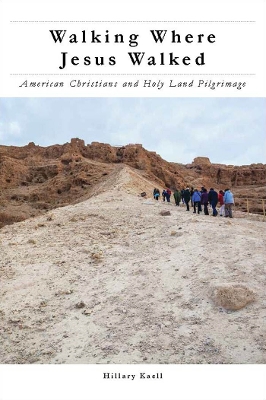North American Religions
1 total work
Since
the 1950s, millions of American Christians have traveled to the Holy Land to
visit places in Israel and the Palestinian territories associated with Jesus’s life
and death. Why do these pilgrims choose to journey
halfway around the world? How do
they react to what they encounter, and how do
they understand the trip upon return? This book places the
answers to these questions into the context of broad historical trends, analyzing how
the growth of mass-market evangelical and Catholic pilgrimage
relates to changes in American Christian
theology and culture over the last sixty years,
including shifts in Jewish-Christian relations, the growth of small group spirituality, and the development of a Christian
leisure industry.
Drawing on five years
of research with pilgrims before, during and after their trips, Walking Where Jesus Walked offers a lived religion approach that
explores the trip’s hybrid nature for pilgrims themselves: both ordinary—tied
to their everyday role as the family’s ritual specialists, and
extraordinary—since they leave home in a dramatic way, often for the first
time. Their experiences illuminate key tensions in contemporary US Christianity
between material evidence and transcendent divinity, commoditization and
religious authority, domestic relationships and global experience.
Hillary Kaell crafts the first in-depth study of the
cultural and religious significance of American Holy Land pilgrimage after
1948. The result sheds light on how Christian pilgrims, especially women, make
sense of their experience in Israel-Palestine, offering an important complement
to top-down approaches in studies of Christian Zionism and foreign policy.
